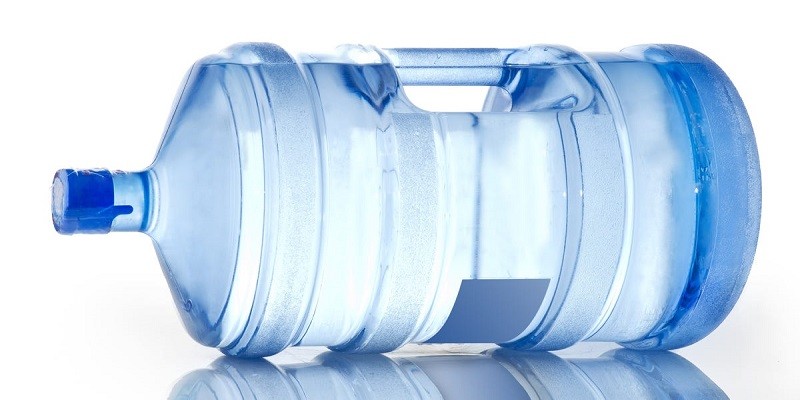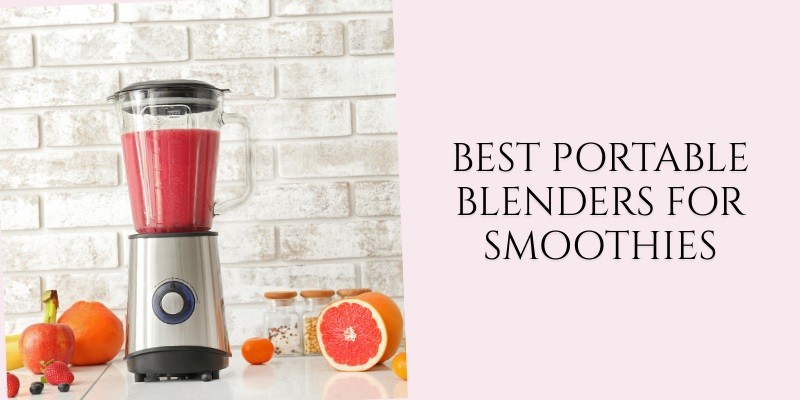Last Updated on September 11, 2023
To clean water jugs, begin by rinsing them with warm water and dish soap, scrubbing with a brush if necessary. Then, fill the jug with a mixture of equal parts white vinegar and water, let it sit for a few minutes, and scrub again.
Rinse thoroughly and air-dry. Water jugs are essential for storing and transporting drinking water, but over time they can accumulate dirt, bacteria, and unpleasant odors. Proper cleaning is necessary to ensure the jugs are safe to use and maintain the quality of the water.
This article provides a simple and effective method to clean water jugs, using common household items. By following these steps, you can enjoy clean and fresh-tasting water from your jugs, promoting a healthier and more hygienic hydration experience.

Credit: academyoffencingmasters.com
How Clean Water Jugs Maintain The Purity Of Your Drinking Water
Water jugs play an integral role in preserving the purity of your drinking water. With proper cleaning and maintenance, these jugs ensure that your water remains fresh and free from contaminants. Regular cleaning removes any buildup and bacteria, allowing you to enjoy clean and safe drinking water.
Keeping Your Water Jugs Clean For Optimal Water Quality:
- Regularly cleaning your water jugs is crucial to ensure the purity and quality of your drinking water.
- Neglecting to clean your water jugs can lead to the growth of bacteria, algae, and other harmful contaminants, compromising the safety of your water.
- By following a few simple steps, you can maintain the cleanliness of your water jugs and enjoy fresh, pure drinking water every time.
The Role Of Clean Water Jugs In Preventing Waterborne Diseases:
- Clean water jugs play a vital role in preventing waterborne diseases that can result from drinking contaminated water.
- Bacteria, viruses, and other pathogens can thrive in dirty water jugs, leading to illnesses such as diarrhea, cholera, and typhoid fever.
- Regularly cleaning and disinfecting your water jugs minimizes the risk of these diseases, ensuring the safety of your drinking water.
Benefits Of Maintaining Clean Water Jugs For Your Overall Health:
- Drinking water from clean water jugs ensures that you are consuming water that is free from harmful contaminants.
- Clean water contributes to the overall health and well-being of your body, aiding in digestion, hydration, and maintaining organ function.
- By keeping your water jugs clean, you are taking a proactive step towards protecting your health and the health of your loved ones.
Signs That Your Water Jugs Need Cleaning
If you notice an odor, discoloration, or slimy residue in your water jugs, it’s time to clean them. Learn how to clean your water jugs effectively to ensure safe and clean drinking water.
Recognizing The Indicators That Your Water Jugs Are Dirty
Water jugs are an essential item in any household, providing a convenient and eco-friendly way to store and access drinking water. However, over time, these jugs can become dirty and contaminated, compromising the quality and safety of the water they hold.
To ensure that your water jugs remain clean and safe for use, it is important to recognize the signs that indicate it’s time for a thorough cleaning:
- Foul odor: If you notice a strong and unpleasant odor emanating from your water jug, it is a clear indicator that it needs cleaning. Bacteria and other microorganisms can thrive in the warm and moist environment of the jug, causing the water to develop an off-putting smell.
- Discoloration: When your water jug starts to appear cloudy, yellowish, or greenish in color, it is a tell-tale sign of contamination. The buildup of sediments, algae, or other impurities can contribute to the discoloration, making it essential to clean the jug promptly.
- Slimy residue: If you touch the inner surface of your water jug and it feels slimy or sticky, it’s a definite sign that bacteria or mold have taken hold. This slimy residue can transfer to the water, potentially causing digestive issues or other health problems.
- Taste alteration: A change in the taste of the water from your jug can indicate the presence of contaminants. If the water starts to taste funny, metallic, or simply unpleasant, it’s time to give your water jug a thorough cleaning.
Regularly observing these signs will help you identify when your water jug needs cleaning, ensuring that you and your family can continue to enjoy clean and refreshing drinking water.
Common Contaminants Found In Dirty Water Jugs
Dirty water jugs can harbor a range of contaminants that pose health risks if consumed. Here are some common contaminants often found in unclean water jugs:
- Bacteria: The warm and damp environment of a neglected water jug creates the perfect breeding ground for bacteria growth. Harmful bacteria, such as E. Coli or Legionella, can contaminate the water, leading to gastrointestinal illnesses, urinary tract infections, or even pneumonia.
- Mold and fungi: Mold spores are prevalent in the air, and when combined with moisture, they can flourish inside a dirty water jug. Ingesting mold-contaminated water can cause allergic reactions, respiratory issues, and other health problems.
- Algae: If exposed to sunlight, water jugs can become a breeding ground for algae growth. Algae not only alter the taste and appearance of the water but also introduce toxins into it, jeopardizing your health.
- Sediment and debris: Over time, water jugs can accumulate sediment, dirt, and other debris. These impurities can make their way into your drinking water and cause gastrointestinal discomfort and even illness.
Understanding the potential contaminants that can be found in dirty water jugs highlights the importance of regular cleaning and maintenance to ensure that your drinking water remains safe and hygienic.
Understanding The Health Risks Associated With Unclean Water Jugs
Keeping your water jugs clean is not just about maintaining their appearance but also about safeguarding your health. Unclean water jugs can pose several risks, including:
- Digestive complications: Drinking water from a contaminated jug can introduce harmful bacteria into your system, potentially leading to digestive issues such as diarrhea, stomach cramps, and nausea.
- Respiratory problems: Mold and fungi thrive in neglected water jugs, and inhaling their spores can trigger allergies and respiratory problems, especially in individuals with pre-existing conditions such as asthma or allergies.
- Weakened immune system: Regular exposure to contaminated drinking water can compromise your immune system, making you more susceptible to infections and illnesses.
- Skin and eye irritation: Unclean water jugs may contain irritants or chemicals that can cause skin rashes, itching, and eye irritation if they come into contact with your skin or eyes.
By understanding the health risks associated with unclean water jugs, you can prioritize regular cleaning and maintenance, protecting yourself and your loved ones from water-related illnesses and discomfort.
Remember, maintaining the cleanliness of your water jugs is crucial for ensuring the safety and quality of the water you consume. Regularly monitor the signs of dirty water jugs, be wary of common contaminants, and stay informed about the potential health risks.
By taking these proactive measures, you can enjoy clean and refreshing water while promoting the well-being of your entire household.
Gathering The Necessary Supplies For Cleaning
Looking to clean water jugs? Learn how to gather the necessary supplies for effective cleaning.
The Essential Tools And Materials For Cleaning Water Jugs
When it comes to cleaning water jugs, having the right tools and materials is crucial for ensuring a thorough cleanse. Here are some essential items you’ll need for this task:
- Dish soap: This is a versatile cleaning solution that helps remove dirt, grime, and bacteria from water jugs.
- White vinegar: Vinegar is known for its powerful cleaning properties and can effectively get rid of odors and stains in water jugs.
- Baking soda: Another natural cleaning agent, baking soda helps eliminate tough stains and odors, leaving your water jugs fresh and clean.
- Cleaning brushes: Invest in a set of cleaning brushes with varying bristle sizes to tackle different areas and sizes of water jugs.
- Microfiber cloths or sponges: These are gentle yet effective in wiping away any residue or cleaning solution from water jugs.
- Scrub pads: For stubborn stains or hard-to-reach areas, scrub pads are a handy tool to have for a deep clean.
- Rubber gloves: Protect your hands from harsh chemicals or hot water with a pair of rubber gloves.
- Water: You’ll need plenty of water for rinsing the water jugs after the cleaning process.
Having these tools and materials readily available will make the process of cleaning water jugs much easier and more efficient. So gather them all before you begin your cleaning journey!
Step-By-Step Guide For Cleaning Your Water Jugs
Discover a step-by-step guide on how to effectively clean your water jugs. Learn the best practices for maintaining your water jug’s cleanliness, ensuring safe and refreshing hydration.
Emptying And Rinsing Your Water Jugs Properly:
- Empty the water jug completely by pouring out any remaining water.
- Remove the lid or cap from the water jug.
- Rinse the jug with fresh water, ensuring that all corners and surfaces are thoroughly rinsed.
- Use a bottle brush to scrub the inside of the jug, paying special attention to hard-to-reach areas.
- Rinse the jug again to remove any loosened dirt or debris.
- Shake off excess water and allow the jug to air dry completely before refilling or storing.
Using Effective Cleaning Techniques To Remove Stains, Odor, And Bacteria:
- Prepare a cleaning solution by mixing warm water with a few drops of mild dish soap.
- Dip a sponge or cloth into the cleaning solution and scrub the interior and exterior of the water jug.
- Pay extra attention to stained or odorous areas, using gentle pressure to remove any buildup.
- Rinse the jug thoroughly to remove any soap residue.
- To remove stubborn stains or odors, create a paste by mixing baking soda and water. Apply the paste to the affected areas and let it sit for a few minutes before scrubbing.
- Rinse the jug again to ensure all cleaning agents are completely removed.
Ensuring A Deep Cleanse With Specialized Cleaning Methods:
- For tough stains or persistent odors, consider using white vinegar as a natural cleaning solution.
- Fill the water jug halfway with white vinegar and the other half with water.
- Let the solution sit in the jug for a few hours or overnight, allowing the vinegar to break down stains and eliminate odors.
- Afterward, thoroughly rinse the jug with water to remove any vinegar residue.
- Another option for deep cleaning is to use a mixture of hydrogen peroxide and water.
- Mix equal parts hydrogen peroxide and water in the water jug, then let it sit for a few hours.
- Rinse the jug thoroughly with water to remove any traces of hydrogen peroxide.
Remember, maintaining clean water jugs is essential for ensuring the quality and safety of your drinking water. By following these step-by-step guidelines and using effective cleaning techniques, you can keep your water jugs fresh, odor-free, and bacteria-free.
Maintenance Tips For Keeping Your Water Jugs Clean
Keeping your water jugs clean is essential for maintaining their quality. Follow these maintenance tips to ensure a hygienic and refreshing water supply at all times.
Regular Cleaning Schedules For Optimal Water Jug Hygiene:
- Cleaning your water jug regularly is crucial to maintain optimal hygiene and prevent the growth of bacteria and other contaminants. Here is a suggested cleaning schedule to follow:
- Daily cleaning: Rinse the water jug with warm water after each use to remove any residue or particles.
- Weekly cleaning: Disassemble the water jug, if possible, and wash all components with mild dish soap and warm water. Pay extra attention to the cap, spout, and inner areas where bacteria can thrive. Use a bottle brush to scrub hard-to-reach areas effectively.
- Monthly cleaning: Deep clean the water jug by soaking it in a mixture of water and white vinegar or bleach. Follow the instructions on the cleaning agent’s label for the recommended ratio and duration of soaking. Rinse thoroughly with water afterward to remove any remaining cleaning solution.
- Inspection: Regularly inspect the water jug for any signs of wear, such as cracks or mold growth. If you notice any damage or unsightly buildup, replace the jug immediately to ensure continued safe use.
Preventive Measures To Avoid Bacteria Buildup And Contamination:
- Taking preventive measures can significantly reduce the risk of bacteria buildup and contamination in your water jug. Consider the following tips:
- Proper rinsing: Always rinse your water jug thoroughly with warm water before using it. This helps remove any residual cleaning agents and ensures you’re starting with a clean surface.
- Use quality water sources: Fill your water jug with water from trusted and clean sources. Avoid filling it with water from questionable or untested sources, as this can introduce harmful bacteria or contaminants.
- Avoid cross-contamination: Never use your water jug to store other liquids or substances. It’s essential to keep it dedicated solely to holding water to prevent cross-contamination.
- Avoid leaving water stagnant: Don’t allow water to sit in your jug for extended periods without use. Stagnant water promotes bacterial growth, so make sure to regularly empty and refill your jug to keep the water fresh.
- Air-drying: After cleaning your water jug, ensure it is completely dry before reassembling or storing it. Moisture can foster bacterial growth, so proper drying is essential.
Storage Recommendations For Maintaining Clean Water Jugs:
- Proper storage of your water jug is essential to maintain its cleanliness and prevent cross-contamination. Here are some recommendations for storing your water jug:
- Air-tight containers: If possible, store your water jug in an air-tight container to protect it from dust, insects, and other contaminants.
- Cool and dry environment: Store the water jug in a cool and dry place, away from direct sunlight or sources of heat. Excessive heat can promote the growth of bacteria or cause plastic components to degrade.
- Elevated surfaces: Place your water jug on an elevated surface, such as a countertop or shelf, to prevent contact with potentially dirty or contaminated surfaces.
- Avoid contact with chemicals: Keep your water jug away from any strong-smelling chemicals, cleaning agents, or detergents, as these can leave residue or taint the water.
Importance Of Regularly Cleaning And Maintaining Water Jugs
Maintaining clean water jugs is crucial for ensuring the purity and safety of your drinking water. Regular cleaning helps to remove impurities, bacteria, and unpleasant odors, ensuring that you have access to clean and healthy water.
Recap On The Significance Of Clean Water Jugs For Your Health And Well-Being
Keeping your water jugs clean and well-maintained is of utmost importance to ensure the safety and quality of the water you consume. Regularly cleaning your water jugs not only contributes to your health and well-being but also extends the lifespan of these containers.
In this section, we will briefly recap the reasons why maintaining clean water jugs is essential for you and your family.
- Prevent bacterial growth: Regular cleaning helps eliminate harmful bacteria that may thrive in your water jugs over time. The accumulation of bacteria can lead to various health issues if consumed.
- Eliminate foul odor and taste: Unpleasant odors or tastes in your drinking water can be attributed to the buildup of contaminants, mold, or bacteria in your jugs. By cleaning them regularly, you can ensure fresh and clean-tasting water every time.
- Minimize the risk of waterborne diseases: Unclean water jugs can become a breeding ground for pathogens, which can cause waterborne illnesses such as diarrhea, cholera, or even typhoid. Keeping your jugs clean reduces the risk of such diseases.
- Avoid cross-contamination: Dirty water jugs can act as a medium for cross-contamination, allowing microorganisms and pollutants to transfer to the water you consume. Regular cleaning helps prevent the transfer of contaminants and ensures the purity of your drinking water.
- Maintain the quality of water: Cleaning your water jugs helps maintain the quality and clarity of the water stored within. It prevents the buildup of sediments, minerals, and impurities that may affect the taste and appearance of your water.
- Extend the lifespan of your jugs: Regular maintenance and cleaning can significantly extend the lifespan of your water jugs. By removing dirt, stains, and residue, you can prolong their durability and avoid the need for frequent replacements.
Final Tips For Achieving Long-Lasting And Clean Water Jugs
To ensure that your water jugs remain clean and in optimal condition, here are some final tips:
- Frequent washing: Wash your water jugs thoroughly with warm water and mild soap at least once a week. Rinse them thoroughly afterward to remove any soap residue.
- Deep cleaning: For deeper cleaning, use a mixture of vinegar and water or a solution of bleach and water. Follow the recommended ratios and rinse the jugs thoroughly to eliminate any remnants of the cleaning solution.
- Regular inspection: Regularly inspect your water jugs for any signs of cracks, discoloration, or unusual odors. Replace any damaged jugs immediately to prevent contamination.
- Proper storage: Store your water jugs in a cool, dry place away from direct sunlight. This helps prevent the growth of bacteria and extends the shelf life of the water stored inside.
- Consider filtration: Use a water filter or purifier to further enhance the quality of your drinking water. This extra measure helps remove impurities and ensures safer consumption.
- Empty and refill: If you haven’t used your water jugs for an extended period, empty and refill them regularly to ensure fresh water circulation and prevent stagnation.
- Educate others: Spread awareness about the importance of regularly cleaning and maintaining water jugs among your family, friends, and colleagues. Encourage them to follow proper cleaning practices to protect their health and well-being.
By following these final tips, you can maintain clean and long-lasting water jugs, ensuring the quality and safety of the water you consume. Stay hydrated, stay healthy!
Frequently Asked Questions Of How To Clean Water Jugs?
How Do You Clean A 5 Gallon Water Jug?
To clean a 5-gallon water jug, first, rinse it thoroughly with hot, soapy water. Scrub the inside using a bottle brush to remove any residue or build-up. Rinse again to remove any soap remnants. Next, mix a solution of water and bleach, using one tablespoon of bleach per gallon of water.
Fill the jug with this solution, ensuring it covers the entire interior. Let it sit for at least two minutes, then thoroughly rinse the jug with fresh water. To remove any bleach smell, consider filling the jug with a mixture of warm water and lemon juice and letting it sit for a few hours.
Finally, dry the jug completely before storing or using it again.
How Do You Clean Reusable Water Jugs?
To clean reusable water jugs, follow these simple steps. First, empty any remaining water from the jug. Rinse the jug thoroughly with hot water. Next, add a tablespoon of dish soap to the jug and fill it halfway with warm water.
Use a bottle brush to scrub the inside of the jug, focusing on the bottom and sides. Rinse the jug with hot water until all soap residue is removed. For tough stains or odors, mix equal parts of white vinegar and water, and let it sit in the jug for an hour before rinsing.
Finally, air-dry the jug upside down, ensuring it is completely dry before storing or refilling. Regular cleaning of reusable water jugs ensures the health and safety of your drinking water.
Is It Safe To Clean A Water Jug With Bleach?
Yes, it is safe to clean a water jug with bleach. Bleach is an effective sanitizer that can kill bacteria and viruses. Dilute one tablespoon of bleach in one gallon of water. Use this solution to rinse the jug thoroughly.
Ensure that the bleach solution comes into contact with all surfaces of the jug. Rinse it with clean water after disinfection to remove any residual bleach odor or taste. Before using the jug again, air-dry it completely. It is important to follow proper safety precautions when using bleach, such as wearing gloves and ensuring good ventilation.
Avoid using bleach on colored or decorative jugs, as it may lead to discoloration or damage.
How Do You Clean A Jug Water Bottle?
To clean a jug water bottle, start by rinsing it with hot water. Then, add a few drops of dish soap to warm water. Use a bottle brush or sponge to scrub the inside of the bottle thoroughly. Pay extra attention to the bottom and neck of the bottle.
Rinse the bottle with hot water again to remove any soap residue. For any hard-to-reach spots, use a small brush or toothbrush. If the bottle has a strong odor, fill it with a mixture of water and baking soda or vinegar.
Let it sit overnight, then rinse thoroughly. Allow the bottle to air dry completely before using it again. Cleaning your jug water bottle regularly helps to prevent bacteria buildup and keeps your water tasting fresh.
Conclusion
Maintaining clean water jugs is crucial for ensuring the safety and quality of the water we consume. Regular cleaning, using gentle but effective methods, is essential in removing any built-up residues, bacteria, or unpleasant odors. Start by emptying and rinsing the jug thoroughly before using a mixture of warm water and dish soap for cleaning.
For tough stains, consider using white vinegar or baking soda. Remember to scrub all areas, including the lid and spout. Afterward, rinse the jug with clean water and allow it to air dry completely. It is important to regularly repeat this cleaning routine to prevent any potential health risks or compromised water quality.
By following these simple steps, you can maintain clean and hygienic water jugs, ensuring the health and well-being of you and your family.










